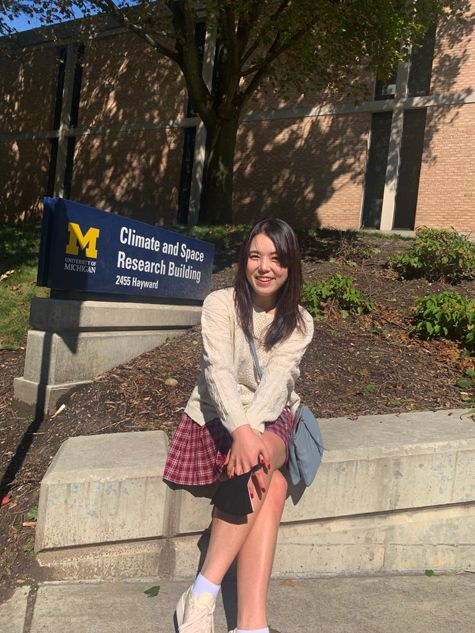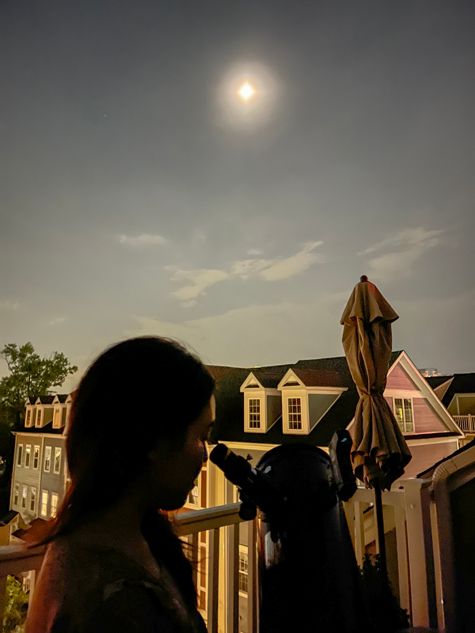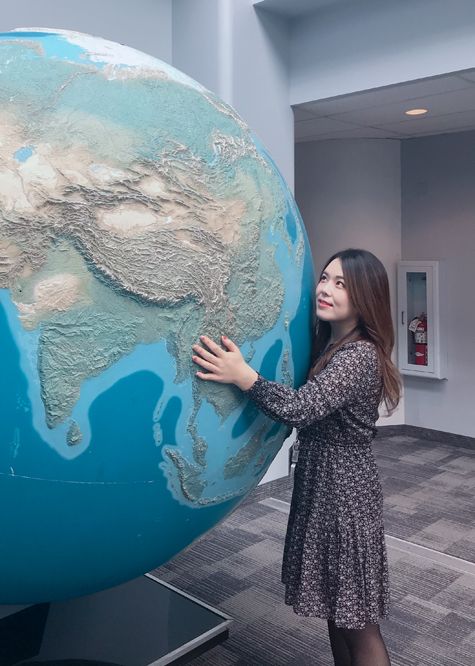Early Career Scientist Spotlight
Dr. Yuni Lee (she/her/hers)
Planetary scientist
Planetary Environments Laboratory (699)
What inspired you to pursue a career in planetary science?
Growing up, my mom always collected interesting science articles in magazines and newspapers for my brother and me. When I was about 6, I remember one article about the Viking program, NASA’s first Mars orbiters and landers that reached the surface of Mars and searched for evidence of life. I was intrigued by these eye-opening stories about stars and planets, and I decided at a young age that I wanted to pursue space science as a career.
I had the good fortune to come to the US as an exchange student in a high school in Minnesota. I lived in the outskirts of a small town where the nighttime sky was darker and more beautiful than I had ever seen before. In college, I was initially interested in astrophysics until I participated in an undergraduate research opportunity. I helped my advisor, who later became my Ph.D. advisor, analyze the water production rate of various comets by using observations taken by the SOHO/SWAN (SOlar and Heliophysics Observatory/Solar Wind ANisotropy) all-sky Ly-alpha camera. Handling real observations from an instrument in space was a fascinating experience and it played a major role in cementing my dream to be a planetary scientist. During my graduate studies, I was fortunate to begin my Ph.D. research in the Martian atmosphere and join the science team of the MAVEN (Mars Atmosphere and Volatile EvolutioN) mission. I am grateful that I had great opportunities and experiences at the right time along my path to pursue planetary science as my career.

Credit: Nathan Hopkins
What is your research focus?
The big questions in my research area are “where did the water go on Mars?” and “how did the planet’s atmosphere evolve to the current state?”. Evidence found in the observations of the Martian surface and atmosphere suggests that Mars once had a warm and wet climate vastly different from its current cold and arid environment. To investigate how the atmosphere evolved, it is crucial to have a thorough understanding of the current state of the atmosphere and the processes that govern the present-day atmospheric escape.
My research focuses on studying the structure and variability of the Martian thermosphere and ionosphere and estimating its atmospheric escape rate. As a science team member of the MAVEN mission, I primarily use measurements from MAVEN’s mass spectrometer NGIMS (Neutral Gas and Ion Mass Spectrometer) and other instruments onboard MAVEN to analyze the spatial and temporal variations of the ionic and neutral species. I also carry out numerical simulations of the exosphere to study Mars’ hot atomic corona and estimate the atmospheric escape rate via photochemical processes. Outside of Mars, I also study atmospheric loss in Mars-like and Venus-like exoplanets. I started extending my research on Mars to exoplanets by applying what I learned via modeling.
What aspects of your work are you most passionate about?
I am passionate about finding out the hidden stories within observations and putting together the full picture to answer the science questions. For example, in observations of the upper atmosphere, what we see is a result of different processes coupling simultaneously. I love finding the signatures of these processes in observations and deconvolving their effects using models. I also like to be creative and effective in the visualization of science analysis. I think research is truly meaningful when the result is well-communicated to readers, so I like to put time and effort into improving my skills.

Credit: Nathan Hopkins
What is a fun fact about you?
When I was in elementary school, there was an annual model airplane tournament. In order to win, you first have to make the plane in a given amount of time and then make it fly as long as possible. There were two types of model airplanes: hang gliders and rubber-powered airplanes. I won the school tournament for rubber-powered airplane and a city competition prize. I remember practicing day and night to make the plane as quickly as possible and find the perfect wing angles. I can still make it without instruction.
If you were to expand your current research focus, what new topic would you explore?
I am very interested in broadening my research to machine learning and artificial intelligence. Machine learning has been increasingly incorporated in the Earth and space sciences to help solve intractable global problems using dense and complex data. I have not yet had a chance to explore machine learning, but I think it would be interesting to see how machine learning can help enrich the current knowledge about the dynamics of planetary atmospheres and plasma environments.

Credit: Der-you Kao
Who inspires you?
My mom is always my greatest inspiration. She is the hardest working person I know, and the enthusiasm and leadership that she has shown through her career influenced me a lot during my childhood. Despite all the adversities that she faced, she was always passionate about educating my brother and me and was very supportive of my dream. She taught me how to face challenges so I could grow my tenacity and resilience, which built in me a solid mindset for anything that I do in my life.

Credit: Yuni Lee
What are your future research interests and goals?
Besides continuing my research on Mars, I’d like to extend my knowledge to other types of planets and their atmospheric loss processes. My research has been focused on weakly-magnetized planets, so it would be interesting to investigate the characteristics of strongly-magnetized planets and conduct comparative studies. Also, I hope to participate in more future planetary missions at Goddard and contribute to science utilizing my expertise. Goddard is a perfect place for me to pursue my research interests and goals as all the relevant experts in my field of study are just a doorstep away from growing possible collaborations.

Credit: Yuni Lee
Biography
Home Town:
Bucheon, South Korea
Undergraduate Degree:
BS in Physics, University of Michigan, Ann Arbor, MI
Post-graduate Degrees:
MS & PhD in Atmospheric and Space Science, University of Michigan, Ann Arbor, MI

